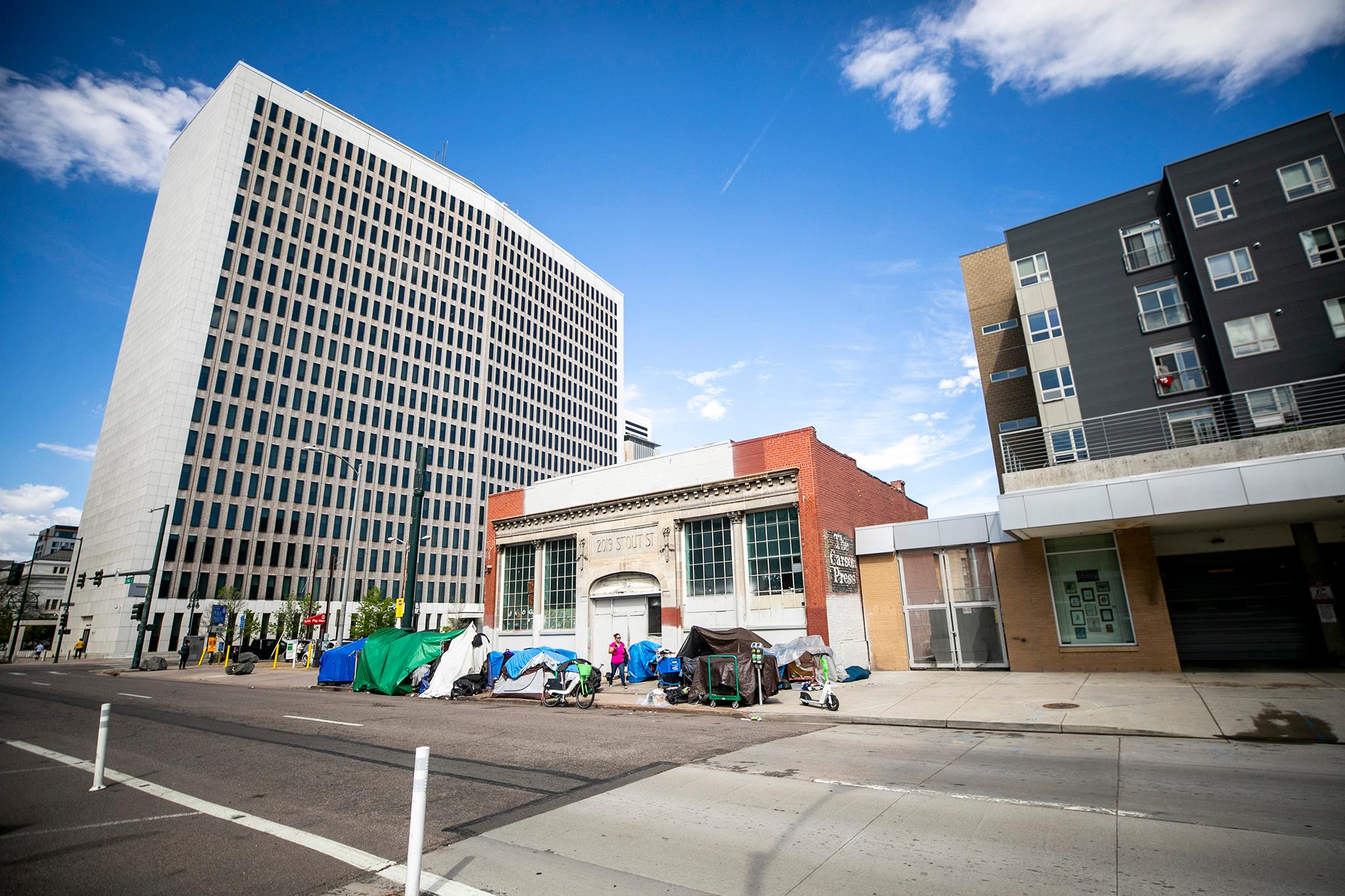On Monday, Jan. 30, volunteers attempted to count every person experiencing homelessness in Metro Denver -- both those living outside and in indoor shelters.
In total, 9,065 people were counted in Denver, Adams, Arapahoe, Broomfield, Jefferson, Douglas and Boulder Counties -- a 31.7% hike from last year.
Of those, 5,818 were in the city and county of Denver alone.
This was the Denver version of the annual Point-in-Time Count led locally by the Metro Denver Homeless Initiative (MDHI) on behalf of the federal Department of Housing and Urban Development. The information helps local and federal governments understand how many people are experiencing homelessness and their demographic breakdown.
The count was conducted during a particularly cold night, which advocates feared might skew the count.
"While the world is no longer in a pandemic, we are beginning to feel the full economic fallout of the COVID-19 era," shared Jamie Rife, the head of MDHI. "With COVID-19 relief funds for the prevention of homelessness coming to an end, as well as many other COVID-era protections, we've seen a sharp increase in the number of eviction filings as more households struggle to pay rent. This, paired with inflation and the increased cost of housing, is resulting in many people falling into homelessness and many being unable to obtain housing."
Homelessness by the 2023 numbers:
The number of families experiencing homelessness in 2023 in the metro rose to 2,101 from 1,277 last year. And 1,316 were experiencing homelessness for the first time -- more than double the number of 2022.
In the City and County of Denver, 1,418 families were experiencing homelessness on that night, 860 of whom were doing so for the first time.
And the total number of people experiencing unsheltered homelessness in the metro area was 2,763, of whom 1,423 were in Denver.
In Denver, the majority of people stayed in temporary shelter.
Black people make up more than 20% of those counted in the Point-In-Time count despite being just about 6% of the Denver metro's population.
Of the total number, 60% are white.
While the Point-in-Time Count functions like a snapshot of one of 365 days, it's not reflective of how many people experience homelessness throughout the course of the year, since people's housing status changes regularly.
"While the region continues to improve our count and was able to locate 9,065 individuals on a single night experiencing homelessness, the Homelessness Management Information System (HMIS) used by our providers allows us to see this number is closer 28,000 throughout the course of the year," said Rife. "We need to keep moving towards understanding who is experiencing homelessness in real-time and by name, so our response is as effective as possible."
Here's what's happening to address homelessness in Denver.
The city's new Mayor Mike Johnston spent his second full day in office declaring a state of emergency around homelessness and addressing how he would end it.
His plan involves creating 1,400 tiny homes, motel rooms and other temporary individual shelters to give people a place to wait for more permanent housing within the next four years.
His goal is to act fast, ensuring at least 1,000 people had housing by the end of the year.
He started the day meeting with his cabinet and ended it in Triangle Park listening to the needs of unhoused residents.
On Monday, he's launching emergency operations in the City and County Building, where all of his cabinet heads will meet to address the crisis, according to his spokesperson Jordan Fuja.
The Housekeys Action Network Denver, a homeless advocacy group comprised of many unhoused residents, is uncertain whether Johnston's plans are sound.
"The Mayor's declaration of an official City recognized State of Emergency reflects the urgency of the houseless community, and opens some resources and streamlined processes that could greatly benefit houseless people in Denver," the group wrote in a statement. "Or... it could be used to further criminalize people living on the streets and push people into controlled sites without respect for human rights, freedoms, or needs."
This story is developing and will be updated.










